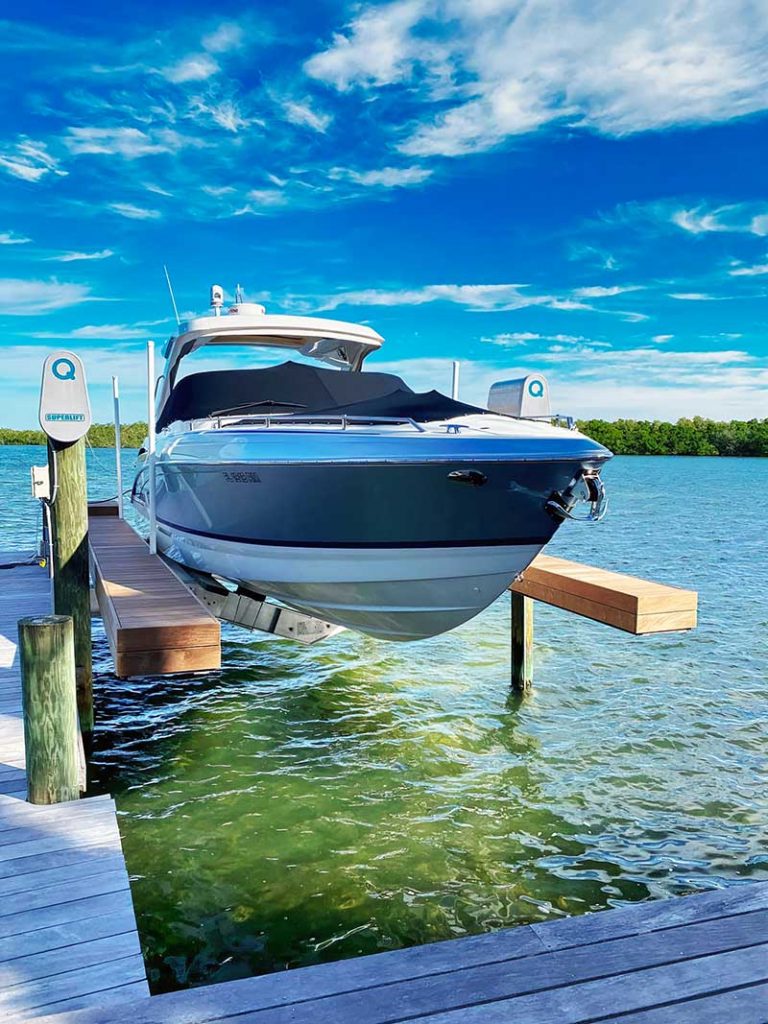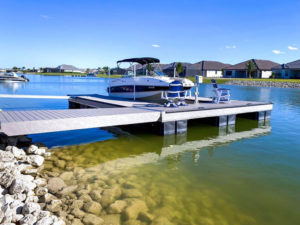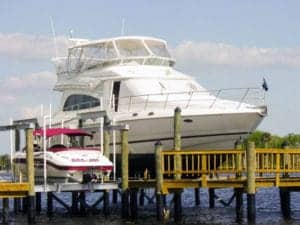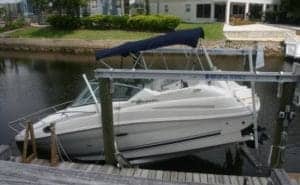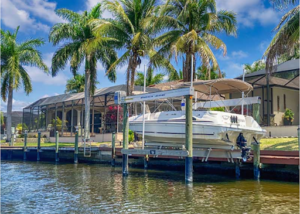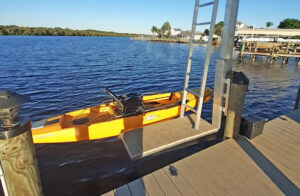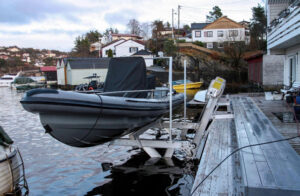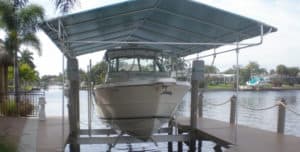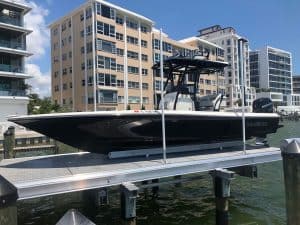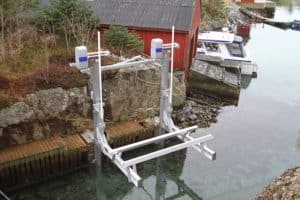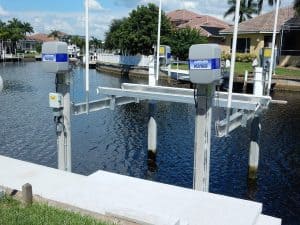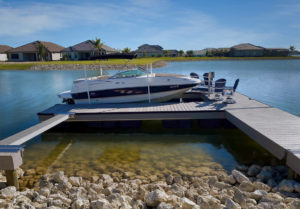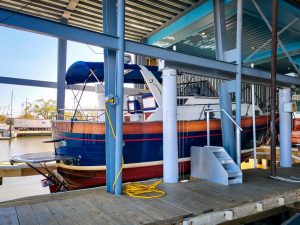Boats are engineered for use in the water. However, prolonged exposure to salt water and fresh water can damage boats. In fact, water exposure can actually shorten the lifespan of a boat. Given that boats are such a substantial investment, it’s important to keep vessels in tip-top shape.
Most boats and yachts on the market today feature hulls made of fiberglass or aluminum. Although fiberglass and aluminum boats are durable, easy to maintain and long-lasting, they are not invincible. Salt water is especially harsh on many materials, but even fresh water can damage boats, too. That’s why it is important to not store boats directly in the water for long periods.
Below are several ways that salt water and fresh water can damage boats:
- Corrosion: Nearly all metals, wiring and electrical hardware can rust with prolonged water exposure.
- Undergrowth: Mold, algae and even barnacles can grow on stationary boats.
- Osmotic blisters: This type of scarring forms when water permeates the surface material.
- Discoloration: Water can stain vessels and leave unsightly color lines or marks.
- Heavy wake: Waves from passing boats can send water gushing onto and into motors.

